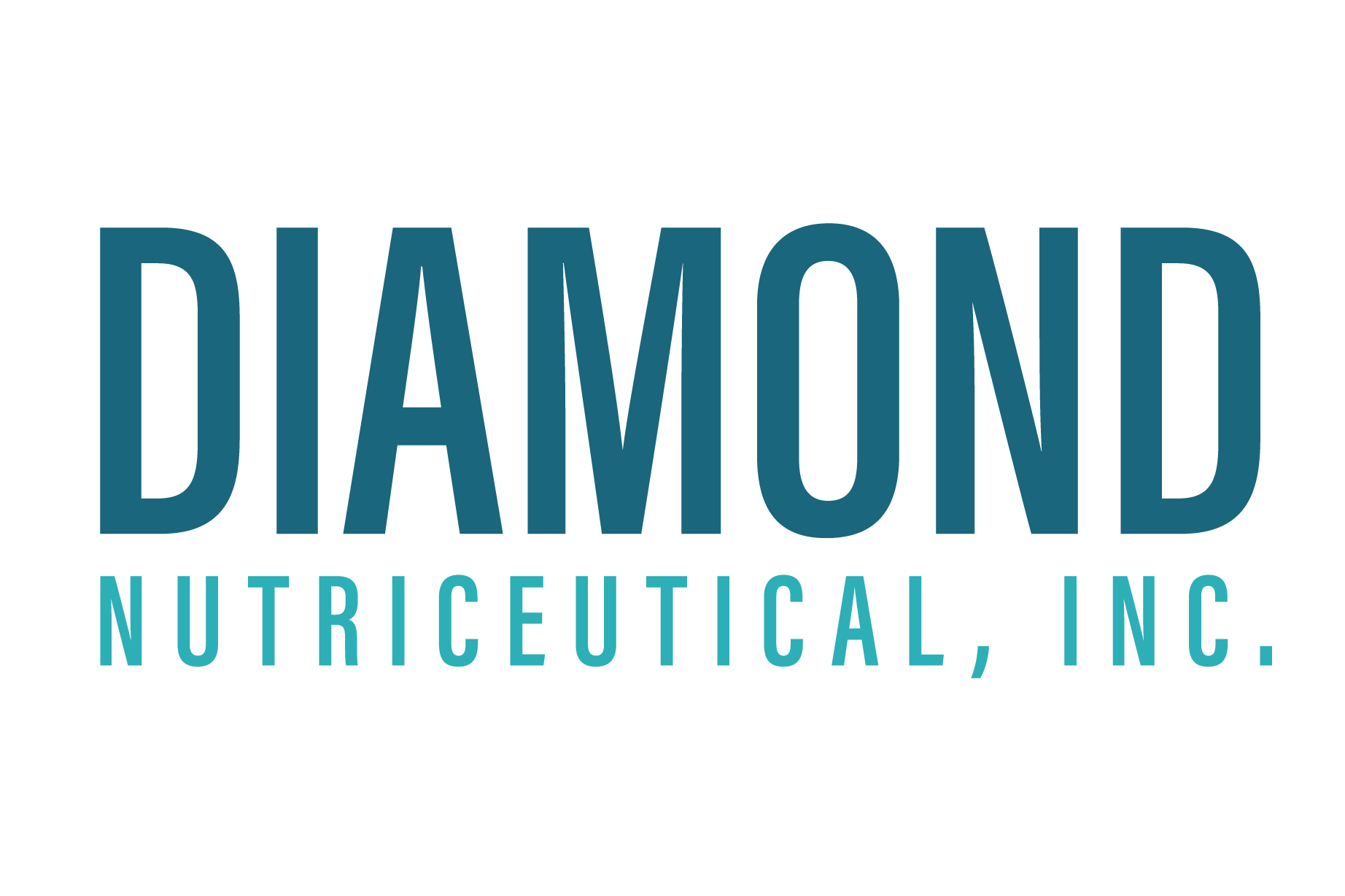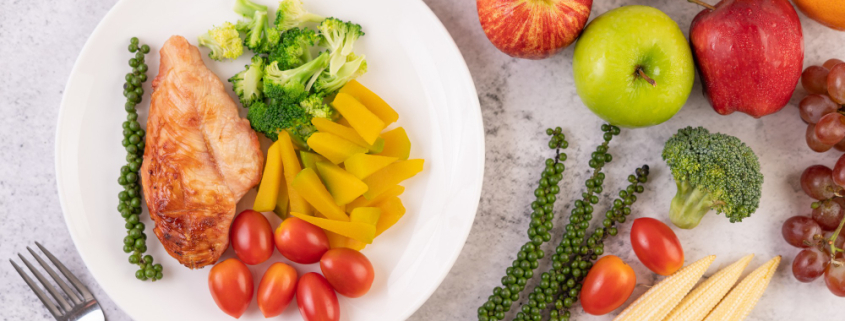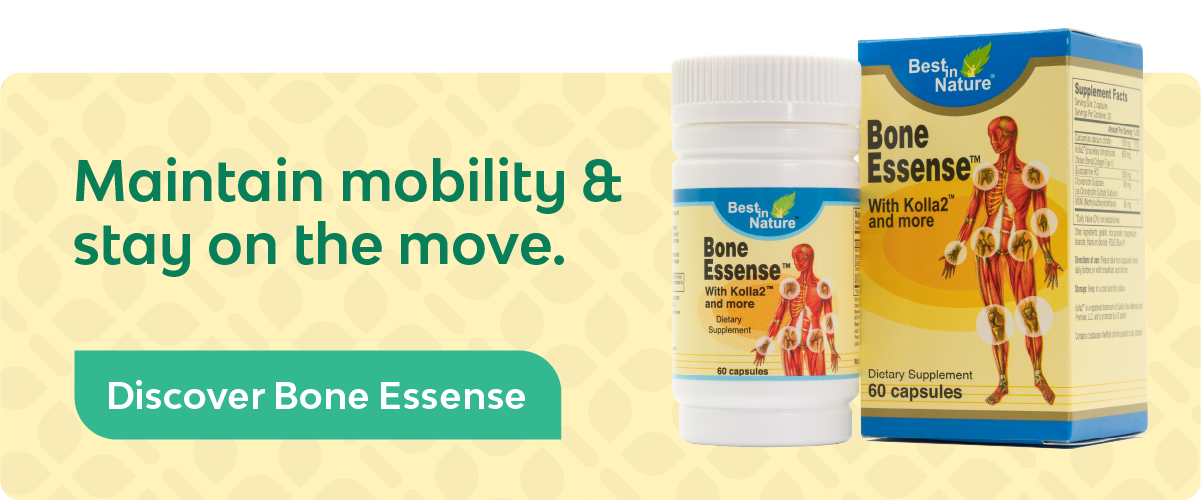9 Foods for Strong Bones and Muscles
As we age, quality of life comes into focus. What does it mean? Well, one of the biggest aspects is mobility. Staying mobile relies on strong bones and muscles both of which weaken as we age. Fortunately, with the right nutrients along and regular activity, we can preserve their strength as we age.
What Nutrients are Needed for Strong Bones and Muscles?
The two most obvious and important are protein and calcium. Additionally, you should aim to get enough vitamin D, collagen, magnesium, and zinc.
Protein is something that most people don’t have trouble getting enough of but the baseline recommendation is about 56 grams of protein per day for men, and about 46 grams per day for women. Those who are physically active may need more protein.
Vitamin D is needed for calcium absorption and you should aim for 600 IU daily.
Collagen is known for making skin supple but there are several types. Overall, ⅓ of our bones and 30% of all protein in the body is made of collagen.
Magnesium contributes to bone stabilization and to bone growth and mineralization. Men should aim for 400-420 mg and women should aim for 310-320 mg daily.
Zinc Zinc is another mineral required for normal skeletal growth and bone homeostasis. The recommended intake is 11 mg a day for men and 8 mg for women.
Now that we know what we need, here are some foods that are excellent sources.
Yogurt
Normally discussed for digestive benefits, yogurt also has a lot to offer for building strong bones and muscles.
The average 8 oz cup of yogurt contains around 30% of your recommended calcium intake (around 448 mg) and 12 grams of protein. Some brands are fortified with vitamin D but not always so take a look at the nutrition facts. Also, Greek yogurt’s nutrition profile is a little different with slightly more protein (20 grams) and less calcium (around 18% of your recommended daily intake).
Fish
Fish, especially fatty fish like salmon, should be on your menu at least 1-2 times per week. Salmon is an excellent source of protein, omega-3, and vitamin D. Omega-3 has been known to help maintain healthy cholesterol levels but recent studies show that it also helps to preserve bone density as we age. If you don’t like salmon, other alternatives are anchovies, herring, mackerel, and black cod.
Try having your fish with the skin on for added collagen.
Tofu

A half-cup (about half of a block) of Tofu offers 860 milligrams of calcium, 17 grams of protein and around 14% of your daily value of magnesium and zinc. As an added bonus, tofu is plant-based and thus free of fat and cholesterol.
Tofu’s naturally mild flavor makes it an extremely versatile meat substitute that can be used in dozens of ways.
Seeds
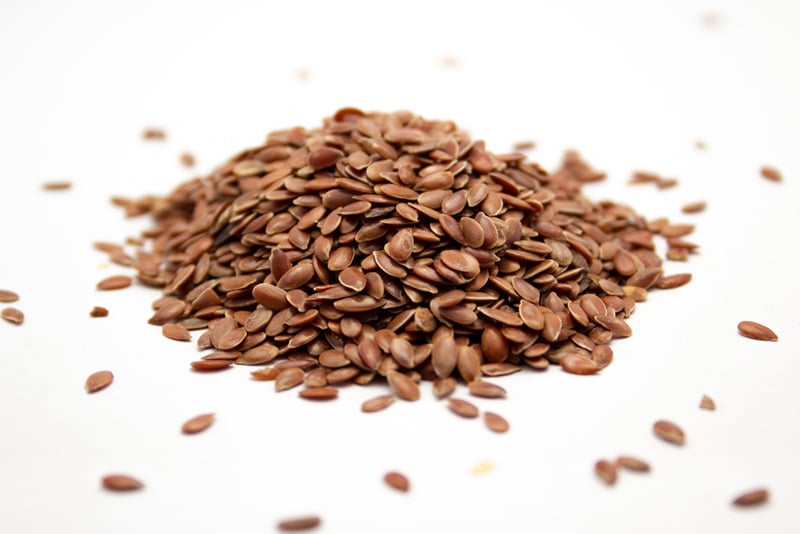
Seeds are another excellent plant-based source of protein and calcium. They’re also rich in dietary fiber, healthy fats, phosphorus, iron, and potassium. You can eat seeds on their own, blend them into a smoothie or sprinkle on top of other foods for added nutritional value.
Almond Butter
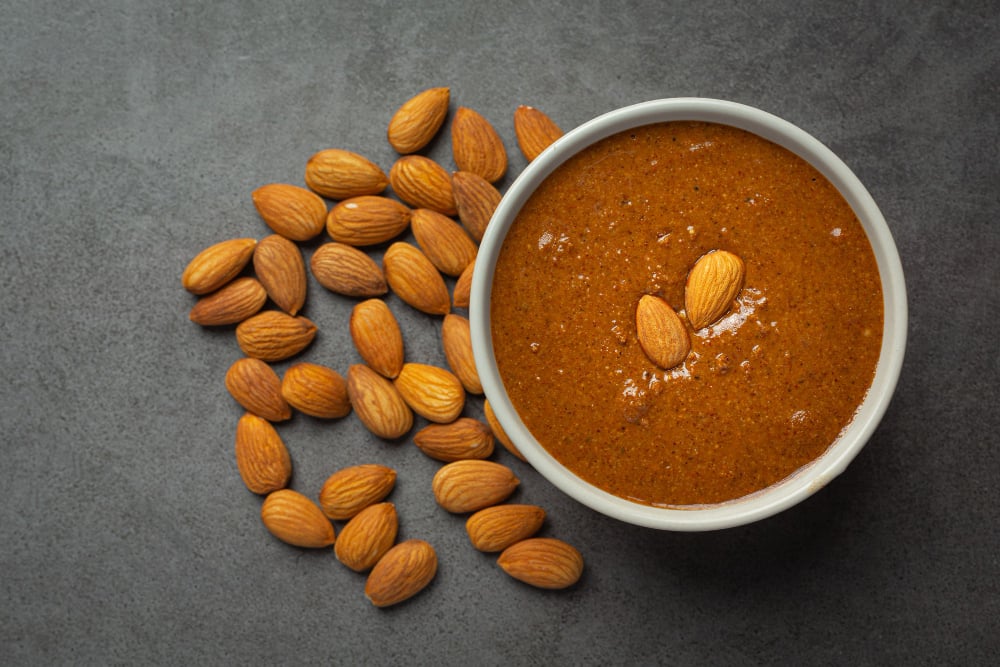
Most nut butters are packed with protein and come with a rich creamy texture that has made them a staple in every cupboard. But before you reach for the peanut butter again, try out almond butter. Almond butter has more calcium (55 mg vs 8 mg) and more vitamins, minerals, and fiber. Overall, almond butter is a bone and muscle superfood.
Leafy Green Vegetables

Leafy green vegetables like spinach, kale, and collard greens are excellent sources of calcium, magnesium, vitamin c, and vitamin k. We need calcium to build strong bones but we need vitamin K to retain them. Studies have shown that not having enough vitamin K raises the risk of developing osteoporosis as we age.
Beans
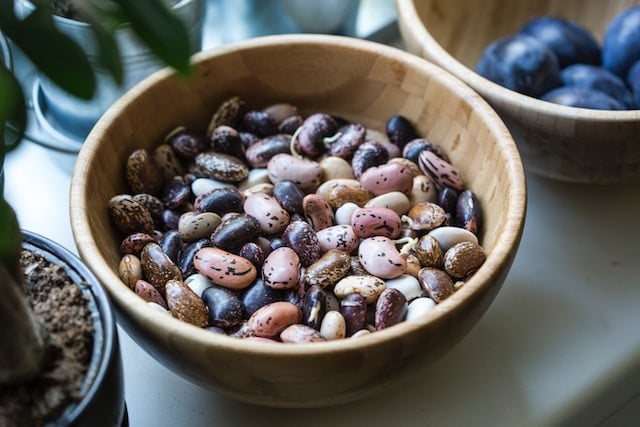
Beans are one of the superstars of this list since they’re inexpensive, extremely versatile, and provide nutrients for strong bones and muscles. Whether you choose black, pinto, white, or kidney beans, you’ll have a calcium-rich and protein-packed meal with zinc to boot.
Quick tip: If you’re preparing dry beans, make sure to soak them in water for several hours to rid them of phytates. These substances interfere with the body’s ability to absorb the calcium in beans.
Eggs
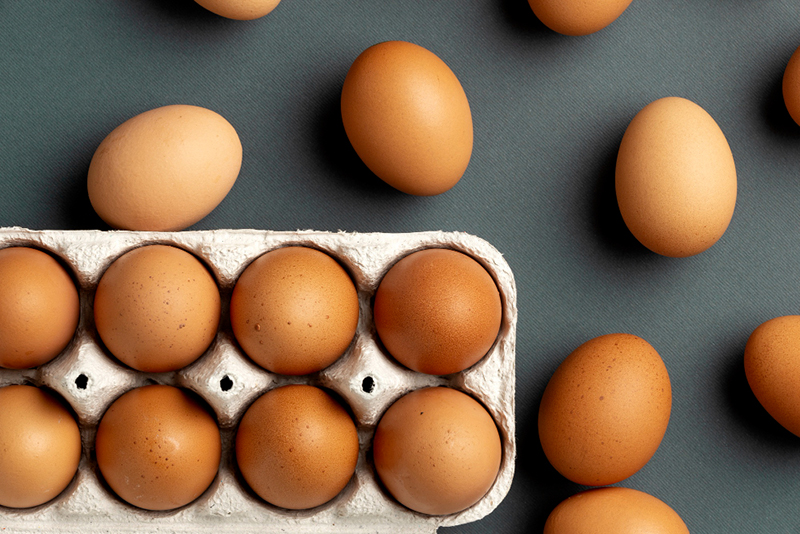
Eggs used to raise alarm bells about cholesterol. But more recent research has shown they don’t contribute to higher blood cholesterol levels. This is great news because eggs are a bone and muscle powerhouse. Each chicken egg contains 25 mg of calcium, 6 grams of protein, and a small amount of vitamin D.
Fortified Foods
Those who don’t eat much dairy or have lactose intolerance may have trouble getting enough calcium and key minerals. Fortified foods can help fill in the gaps. These foods are supplemented with additional vitamins and minerals like calcium and vitamin D. Common fortified foods include cereal, nut milk like almond, oat, and soy milk, and orange juice.
Bottom Line
As the years go on, you appreciate your mobility more and more. Add these foods to your diet to maintain strong bones and muscles in addition to exercise, and proper sleep.
